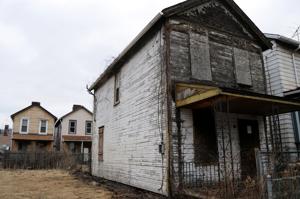Pennsylvania lawmakers told that blight legislation from 2008 not living up to intended aims

(The Center Square) – More than a decade ago, Pennsylvania lawmakers passed a bill with the aim of decreasing urban blight and empowering neighborhood groups to have a say in how distressed tracts of lands are redeveloped. But recently, a group of legislators heard that things haven’t worked out as many had hoped.
The Pennsylvania Senate and House Democratic Policy Committee held a virtual public hearing to hear comments about the Abandoned and Blighted Property Conservatorship Act and discuss potential changes to protect communities while eliminating blight.
Act 135, the Abandoned and Blighted Property Conservatorship Act, was passed in 2008 to allow responsible owners to take over abandoned properties and rehabilitate them.
Renovated buildings have attracted new opportunities and provided access to affordable homeownership in underserved areas. Yet concerns are being raised over neighborhood gentrification, housing developers taking advantage of Act 135 to cheaply acquire properties, and a vicious cycle of building abandonment and blight.
“Since the passing and amendment of the legislation, there have been abuses of the law that have emerged, resulting in lost equity, lost access, and damaging speculation,” said Ernie Hogan, executive director of the Pittsburgh Community Reinvestment Group. “Our members have told us loud and clear that many neighborhoods have seen unscrupulous investors surface with the desire to speculate and flip real estate, in some cases competing with local neighborhoods organizations.”
Eight people testified in the hearing to present options on how to improve the policies to eliminate neighborhood blight while still protecting communities. State Sen. Jim Brewster stated that he expected changes to Act 135 after the testimony heard at the policy hearing.
“I have been an advocate of this kind of blight removal legislation over the years, because run-down and abandoned buildings hamper local communities as they implement development initiatives and attract new opportunities to the area,” Brewster said.
Disclaimer: This content is distributed by The Center Square


